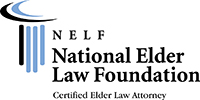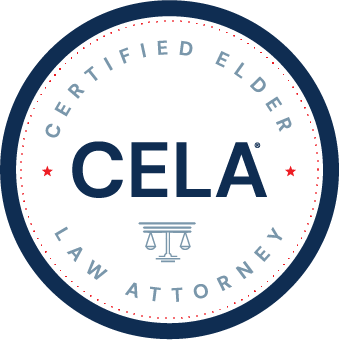By Bradley J. Frigon
Unfortunately, more and more families are becoming familiar with a concept known as "negative inheritance." Economists use this term to describe the situation where the time and cost of caring for an aging parent outweigh any gifts or inheritance the surviving spouse or children receive. Negative inheritances can destroy a child's retirement or leave the surviving spouse unable to pay for their own care.
For example, if a child had planned to withdraw a small percentage from his or her portfolio each year to support the child's lifestyle, but now must increase that percentage by fifty percent to take care of aging parents, then the child's financial plan won't work. Another common situation for a negative inheritance involves the surviving spouse. If the spouse taking care of the family finances develops dementia, money problems will quickly follow and a lifetime of savings can be wiped out in a matter of months.
Another cause for negative inheritance comes from bad investment choices and management. Many seniors do not change their investment allocation to protect against dramatic market losses or they have tied up all of their money in annuity products with high surrender charges.
The most critical element in avoiding negative inheritances is proactive family discussion. The family dynamics may be difficult, but if the family does not discuss possible scenarios in advance, then the care giving inevitably falls to one child. This can cause tension and resentment and can damage family relationships.
Elder law attorneys often ask their clients for permission to talk with their aging parents to review the status of their assets, and to determine what plans the parents have in place for their long-term care. Legal documents should be reviewed and a series of financial projections should be run to determine if the parents' assets are sufficient for their care. If the parents cannot qualify for long-term care insurance because of their age or medical conditions, then it is essential to actively manage the parents' assets. This may include dealing with the family home or taking advanced steps for the parents to qualify for Medicaid. Often, people are house-rich and cash-poor. Obviously, selling the family home in order to provide funds for care or to diversify assets can be stressful for all concerned. Sometimes, however, it will be the inevitable option.
Studies show that middle-aged care-givers can suffer emotionally and vocationally, as well as financially. Some baby boomers will work at part time jobs in retirement so they can care for their parents. The care-giving workload can increase from an average of five hours per week to forty hours per week when the parent suffers from Alzheimer's disease or severe dementia. The care-giver has less time to save for their retirement and spend time with their own families. This emotional toll does not appear on a balance sheet, but it is real.
It is critical to receive independent qualified advice when dealing with family finances. The attorneys at the Law Offices of Bradley J. Frigon can assist clients and their families with their estate, long-term care, and financial planning needs.
Learn more
Learn more by browsing our estate planning articles.
Call (720) 200-4025 now or email us to find out how our attorneys can advise you on your estate planning.












